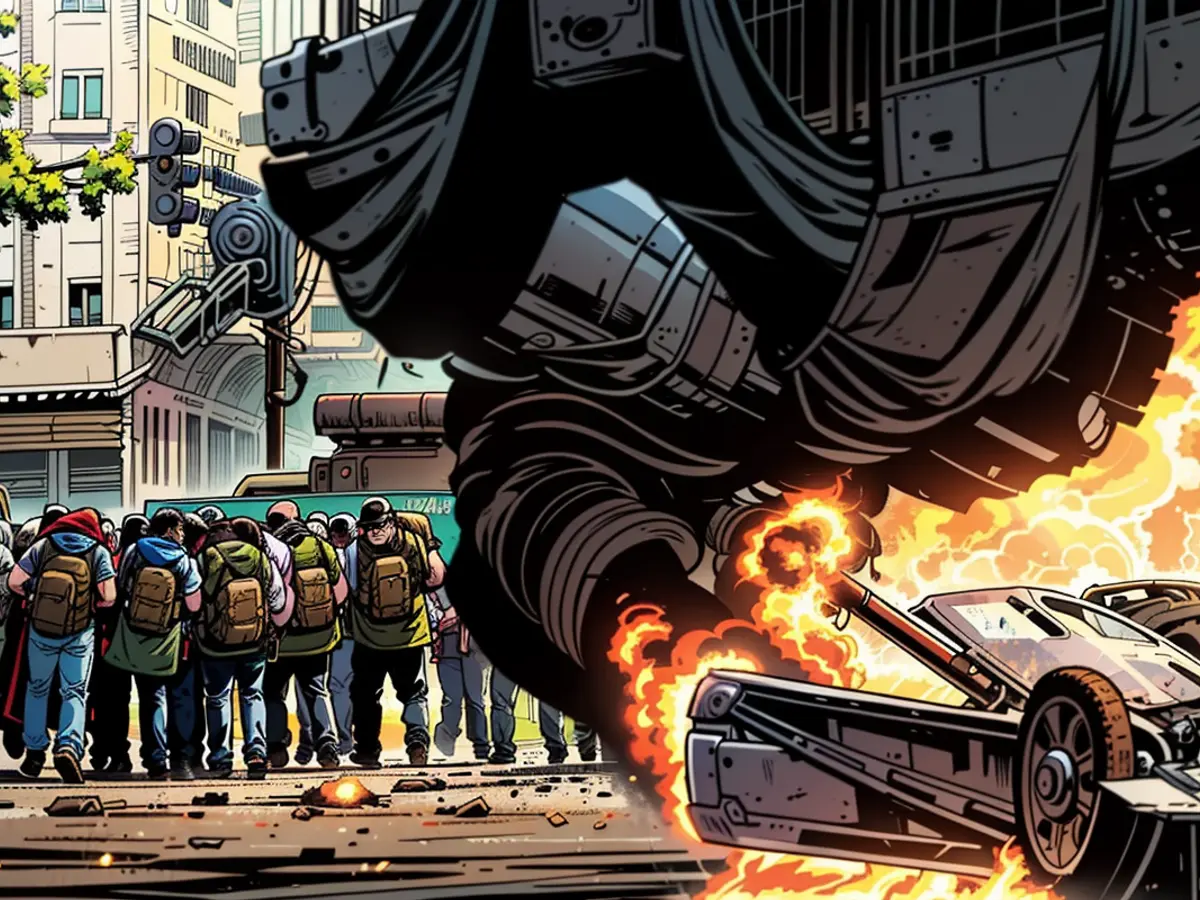Argentina experiences a surge in COVID-19 cases and imposes lockdown measures. - Milei's proposed changes ignite violent unrest
In Argentina, there was a heated debate in the Senate about a reform package proposed by a liberal government. Demonstrators and law enforcement engaged in physical confrontations near the Congress building. Protesters wore masks and hurled rocks and Molotov cocktails at the police, who in turn battered them with batons and threw tear gas. Multiple vehicles were engulfed in flames, according to a report from TN TV. Approximately 20 people were detained by the authorities.
Elsewhere, the National Congress hosted a discussion about the comprehensive reform plan of President Javier Milei's government. This legislative project includes several initiatives, such as the privatization of some state-owned companies, tax exemptions for wealthy investors, and changes to the labor market and tax system. To secure a majority in parliament, the government had to significantly reduce the proposed measures. Social organizations and left-leaning opposition parties denounce this reform package as neoliberal and unjust.
Argentina is in the midst of a severe financial crisis. Their inflation rate is close to 290% - one of the highest in the world. The main economic issues in the country are an overgrown bureaucracy, low industrial output, and a large informal sector that deprives the government of much-needed taxes. President Milei, an ultra-liberal leader, hopes to rebuild Argentina with a radical austerity program. He's dismissed thousands of public sector jobs, decreased subsidies, and reversed social programs. As per the Catholic University of Argentina, over 56% of the Argentina's inhabitants live below the poverty line, with about 18% enduring extreme poverty.
Read also:
- The government's austerity policy, as part of the reform package, led to mass demonstrations in Buenos Aires, causing widespread unrest.
- Javier Milei's proposed privatization of state-owned companies and tax exemptions for wealthy investors sparked intense riots, further escalating the situation.
- In response to the violent demonstrations, the police used tear gas and batons to disperse the protesters, who were driving cars and throwing projectiles at officers.
- The government's moves to privatize and reduce taxes were considered a threat to workers' rights and living standards by union members, who also participated in the demonstrations.
- In Parliament, critical voices against the reform package argued that it would exacerbate the country's inequality and weaken the social safety net, making life even harder for the poor.
- The privatization and austerity measures targeted by the reform package could have negative long-term consequences for Argentina's economy, such as reduced public services, increased burden on consumers, and tensions between different societal groups.
- The riots caused financial losses and damages, including property destruction, and further exposed Argentina's tense political climate and political polarization, which continues to impact the country today.








